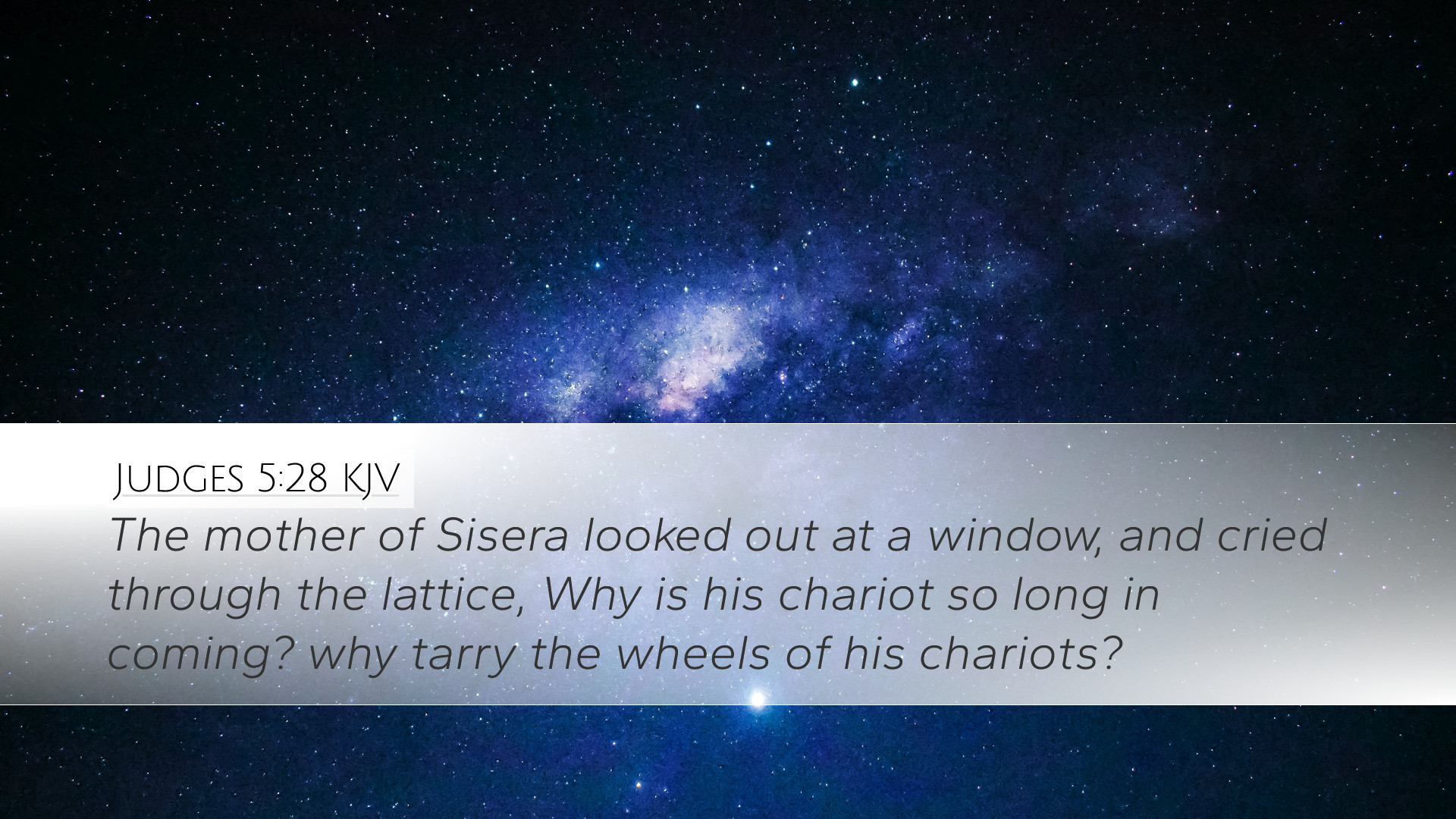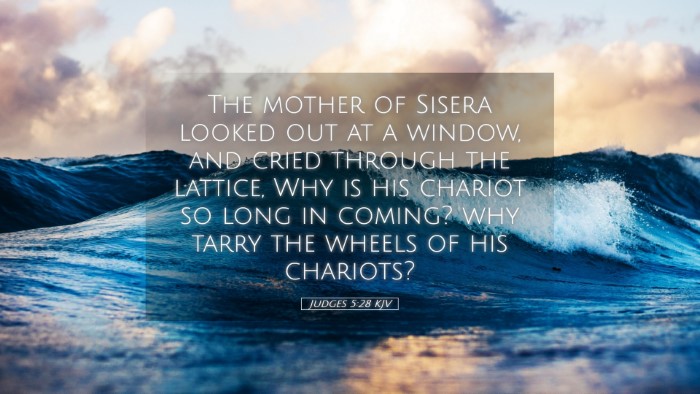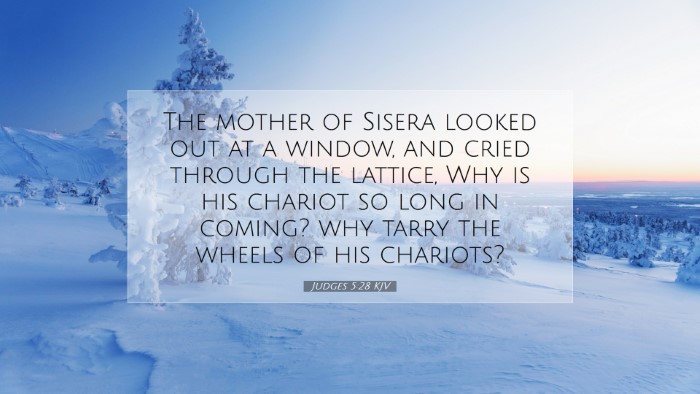Judges 5:28: Commentary and Insights
Verse Reference: Judges 5:28 - "The mother of Sisera looked out at a window, and cried through the lattice, Why is his chariot so long in coming? why tarry the wheels of his chariots?"
Introduction
Judges 5:28 is a poignant verse in the Song of Deborah, offering a glimpse into the emotional landscape of a mother whose son, Sisera, is in battle. The imagery described encapsulates the themes of hope, despair, and ultimately, the consequences of conflict.
Contextual Background
This verse is situated in the broader narrative of Judges 4 and 5, which recounts the victory of Israel over the Canaanites. It reflects on the aftermath of battle from the perspective of Sisera’s mother, juxtaposing the celebration of Israel's triumph with the mourning anticipated by a mother waiting for her son’s return.
Exegesis and Commentary
1. Maternal Despair:
-
According to Matthew Henry, the mother's anxious waiting illustrates the universal nature of a mother's love and concern for her child. Her window becomes a representation of hope but also of impending despair.
-
Albert Barnes emphasizes that her cry from the lattice signifies not just a physical separation but also an emotional and spiritual distance created by war. The latticed window serves as a barrier through which she yearns for information that remains elusive.
2. Symbolism of the Chariot:
-
Here, the chariot symbolizes both the power and the danger of military might. The anticipation of Sisera’s arrival in his chariot reveals a mother's pride, which simultaneously lays the groundwork for her sorrow as she is met with silence.
-
Adam Clarke notes that the delay of the wheels underscores the chaos of battle and the unpredictability of outcomes in warfare, reflecting a deeper theological truth about the sovereignty of God over the affairs of men.
3. Human Insight into Divine Judgment:
-
The mother’s cry can also be seen as a foreshadowing of divine judgment against the enemies of Israel. Henry applies a theological lens, noting that God’s hand is evident in the delay and the ultimate fate of Sisera.
-
This moment serves to remind God’s people of the consequences of sin and rebellion, conveying the profound message that God can turn the mightiest of enemies to dust.
Thematic Implications
1. The Fragility of Human Life:
-
The verse encapsulates the fragility of human life and the uncertainties that accompany it. The mother's anticipation turns to dread, offering a rich ground for reflection on the nature of hope and loss.
-
As noted by Clarke, this lament resonates with the human spirit's longing for peace, contrasting it with the chaos of conflict and the unpredictable course of life.
2. The Role of Women in Scripture:
-
This passage touches on the often-overlooked role of women in biblical narratives, demonstrating their emotional depth and integral part in the community's life and the consequences of warfare.
-
Deborah and Jael’s courage, juxtaposed with Sisera's mother's agony, enrich the text and invite deeper exploration of women’s influence and their narratives in Scripture.
Pastoral Applications
Pastors and church leaders can draw several lessons from Judges 5:28:
-
The Importance of Empathy: Understanding the emotional ramifications of conflict can lead to better pastoral care, highlighting the need to comfort those who grieve.
-
Hope in the Midst of Despair: Just as Sisera's mother waited for her son, believers today must cultivate patience and faith, trusting in God’s timing, even amidst suffering.
-
Women’s Voices: Honoring and elevating the voices of women in the church reflects the rich contributions they offer, both historically and in contemporary settings.
Concluding Thoughts
Judges 5:28 serves as a stark reminder of the personal cost of war and conflict. By examining the layers of emotion, symbolism, and theological implications within the text, scholars and students can appreciate its enduring relevance.
The insights from commentators such as Matthew Henry, Albert Barnes, and Adam Clarke enrich the understanding of this passage, allowing pastors and theologians to explore deeper truths about humanity, divinity, and the consequences of rebellion.


